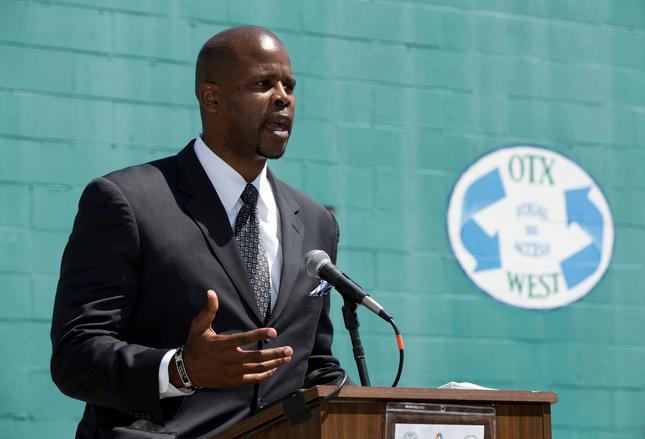Postscript-Note that, significant financial issues have been reported in the district post departure, and there was an insinuation at least, that those deficits were deliberately shielded from the OUSD Board, you can read a follow up piece here
News broke today that Oakland Unified’s superintendent, Antwan Wilson was moving on to become the new school chief in DC. This has been a tumultuous couple of years in Oakland, marked at times by divisive rhetoric and deadlocks, but also some real progress that will last beyond this superintendent.
While the media and advocates have tended to focus on the charter school question in Oakland, and the bloody battle over a single application for all public schools, charter and district. That missed the most important legacies and the real progress.
Real Progress and a different approach
Improving services and results for African American students– the superintendent didn’t start the African American Male Achievement Initiative (AAMAI) or the corresponding program for Young Black Women (AAFAI), but he did keep them moving and highlight them. And it was his administration, building on the work of Sultanah Corbett and colleagues at MLK, that supported the development of a dedicated office for young Black women.
Different children often experience the schools differently, facing a range of explicit and implicit biases. Creating dedicated offices, and funding them, is a huge step towards equity and its paying off in rapidly advancing graduation rates. This is working.
Significantly improved programs for English learners– OUSD has historically provided very substandard services to ELLs. This is a predictably large segment of students, roughly 1 in 3, who received predictably substandard services. When the Superintendent came in, Stanford was conducting a review of services—the results were disturbing, with widespread bullying, very weak supports, and little academic content for ELLs — and changes were made. And again we can see real significant changes in reclassification of students to English proficient.
Financial stability– Boring but important, the district solidified its financial status and improved its bond rating, which will save millions of dollars. Money that can be spent on students. For those who were here in the District’s bankruptcy, you get how important it is to have our bank statement straight. We lost control of the district when we couldn’t manage the finances—and I don’t think anyone can argue that that was good for kids, or that the state administrator was better than any elected superintendent.
A better vision– We are slowly moving from the “one size fits all” model of schooling, and starting to understand and address the fact that different groups of students tend to be affected differently in the system, intentionally designing sustainable programs to understand and support vulnerable populations. The AAMAI and AAFAI, are great examples of this, but also the programs for newcomers, and other offices are under study.
I also appreciated the district taking some calculated risks in supporting new schools and programs like Thrival Academies, which will take Oakland students to study abroad in Thailand. This surely would have died somewhere in the district bureaucracy without leadership. He showed an understanding of how important it is for our students to have these experiences and to be supported in who they are and growing into that person they can be.
I always felt the Superintendent, saw himself in our kids in Oakland. He saw the promise that we have and also the challenges that many children face, and understood the role that schools can play in changing trajectories. At times, maybe his eyes were bigger than his stomach, trying to do too much too soon, without really knowing the capacity to successfully implement change.
His move towards more inclusionary setting in special education was met with substantial resistance. Some of the school turnaround work seemed too hasty and unsupported. And the aborted move to do common enrollment with district and charter schools, which over 70% of parents supported, but met with predictable interest group resistance and ambivalence from many of the schools themselves, and ultimately failed.
Obviously others in Oakland have different opinions, and strong ones, though public support for the District and its leadership are at historic highs. But when the smoke has cleared, and the rhetoric has died down, I do think we are better off in Oakland, and particularly for some of our most vulnerable populations we are seeing real, demonstrable, progress.
This never comes down to one leader who makes this happen. It’s the hard daily work in schools, communities, and homes, which will continue. But empathy and vision matter, and can set a context for improvement.
As the superintendent leaves, I hope we don’t stall or stray. That we build off this work and continue the progress in communities. We are moving in basically the right direction. But the progress will, as it always has, depend on us.

